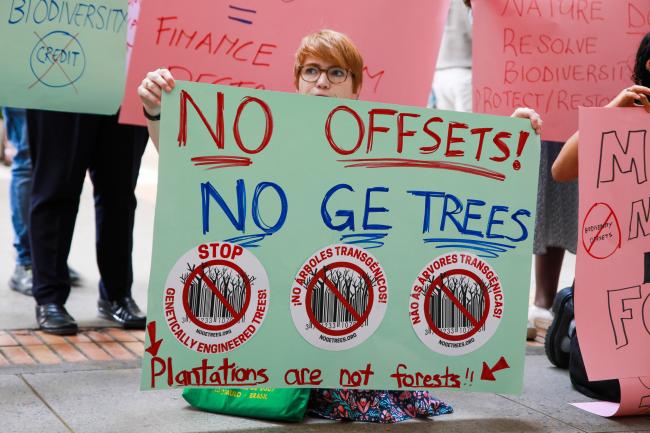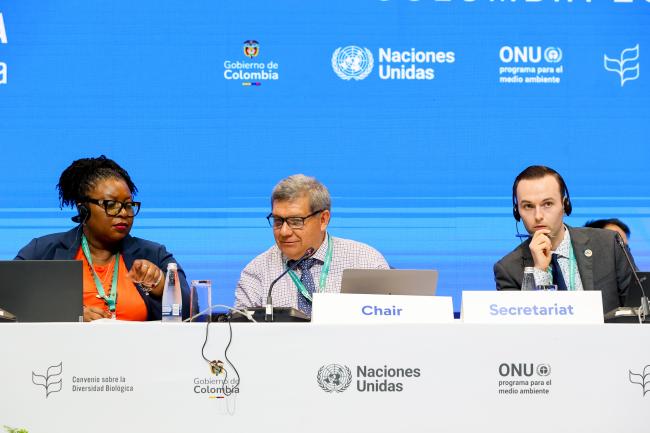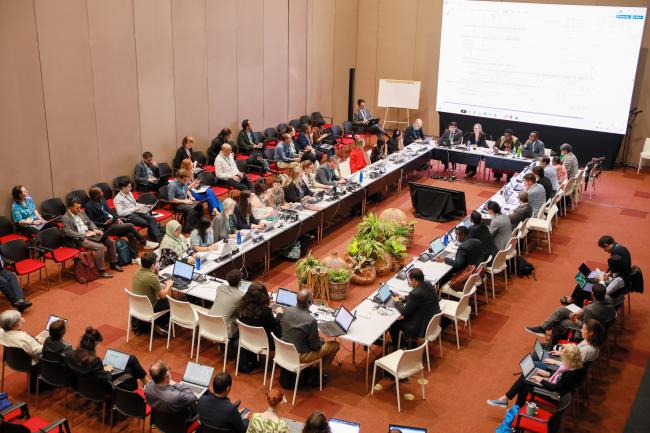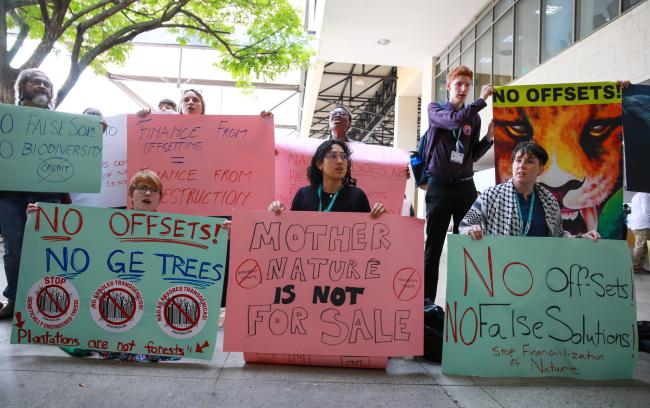Delegates gathered for the second and final week of the UN Biodiversity Conference following a weekend devoted to resolving divergences in contact and informal groups on high-stake issues. Progress was reported on many issues regarding digital sequence information (DSI), resource mobilization, and Article 8(j) (traditional knowledge), although disagreements remain on several fronts. Both the negotiations and parallel events showcased the interlinkages between the Convention’s broad agenda and the crucial role of cross-cutting items, including finance, technology transfer, and issues related to Indigenous Peoples and local communities, as well as traditional knowledge, to reaching a successful outcome.
As text-based negotiations continued, Working Group II addressed conference room papers (CRPs) on several items under the Convention on Biological Diversity (CBD) and the Cartagena Protocol on Biosafety. As announced by the Global Environment Facility (GEF), during a pledging session, eight governments pledged an additional USD 163 million to the Global Biodiversity Framework (GBF) Fund: Austria, Denmark, France, Germany, New Zealand, Norway, the UK, and the government of Quebec, Canada.
Delegates approved a number of CRPs under the Cartagena Protocol on Biosafety, including on: compliance; risk assessment and risk management; and detection and identification of living modified organisms. On items under the Convention, deliberations proved more difficult. Despite best efforts by Working Group II Chair Hesiquio Benítez (Mexico), disagreements persisted in discussions of CRPs on invasive alien species, biodiversity and health, and biodiversity mainstreaming. Unresolved matters included references to the Global Invasive Species Database, actions to ensure biodiversity and health co-benefits regarding Target 13 (benefit-sharing), and future work on mainstreaming, respectively.
Several contact and informal groups deliberated throughout the day. The contact group on capacity building made headway in cleaning text in the draft decisions and annexes contained in non-papers on capacity building and development, and on the Clearing-house Mechanism (CHM) and knowledge management. The contact group on the financial mechanism focused on a list of requests to the GEF, including a request to explore ways to enhance equitable geographical representation within and between its constituencies and to consider reforms on its governance structure.
The contact group on planning, monitoring, reporting, and review (PMRR) continued deliberations on the monitoring framework of the Kunming-Montreal Global Biodiversity Framework (GBF) and mechanisms for PMRR. Deliberations on DSI focused on database governance, including on whether the CBD Conference of the Parties has a mandate over databases, with many highlighting CBD parties’ responsibility to take measures to ensure that databases within their jurisdiction comply with CBD decisions.
Negotiations continued in the evening in contact groups on climate change, synthetic biology, Article 8(j), and resource mobilization. “It’s a marathon, not a sprint” one experienced delegate commented, highlighting the need for focus and resilience.
To receive free coverage of global environmental events delivered to your inbox, subscribe to the ENB Update newsletter.
All ENB photos are free to use with attribution. For the 2024 UN Biodiversity Conference, please use: Photo by IISD/ENB | Mike Muzurakis
Contact Groups

Contact Group on the financial mechanism Co-Chairs Ladislav Miko, Czechia, and Laura Bermúdez Wilches, Colombia

From L-R: Kirsty Bryant, CBD Secretariat; and Contact Group on DSI Co-Chairs William Lockhart, UK, and Lactitia Tshitwamulomoni, South Africa

Contact Group on mechanisms for planning, monitoring, reporting, and review Co-Chairs Anne Teller, EU, and Ntakadzeni Tshidada, South Africa

Contact Group on mechanisms for planning, monitoring, reporting, and review Co-Chair Gillian Guthrie, Jamaica

From L-R: Q”apaj Conde Choque, CBD Secretariat; and Contact Group on Article 8(j) Co-Chairs Lucy Mulenkei, Indigenous Information Network, and Pernilla Malmer, Sweden








































